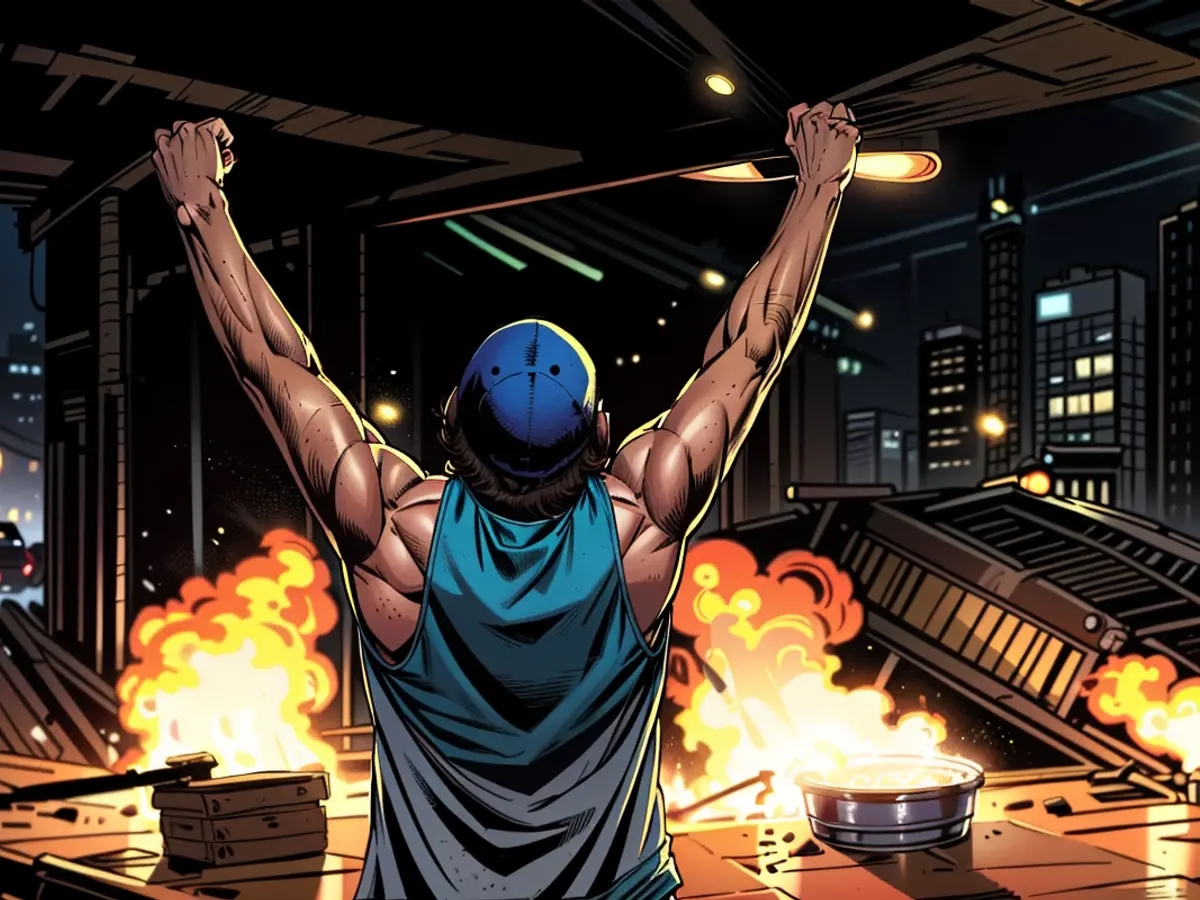- Venezuela's power struggle - Protests against Maduro's election victory
Following the contentious tallying of the presidential election in Venezuela, pressure on the streets is mounting. At least one person was killed and five others injured by gunshots during protests against the election results, according to the independent organization Foro Penal. Additionally, 46 protesters were arrested.
The National Electoral Council officially declared Nicolás Maduro, who has been ruling since 2013, the winner of the presidential election held on Sunday. The opposition accused the government of election fraud and claimed victory for their candidate, Edmundo González Urrutia. Opposition leader María Corina Machado stated that they had access to 73 percent of the result lists, which showed an insurmountable lead for the challenger.
Doubt over the official election results was also expressed in the United States, the EU, and several Latin American countries. In response, Venezuela recalled the ambassadors of Argentina, Chile, Costa Rica, Peru, Panama, the Dominican Republic, and Uruguay, and withdrew its diplomatic staff from these countries.
Russia urges Venezuelan opposition to recognize Maduro's election victory
Meanwhile, the authoritarian government in Caracas received support from its allies in Russia, China, Cuba, and Nicaragua. Moscow called on the Venezuelan opposition to acknowledge its defeat and accept Maduro's victory. "Of course, it is very important that these attempts to escalate the situation in Venezuela are not fueled by third countries, and that Venezuela remains free from external interference," said Kremlin spokesman Dmitri Peskov.
Fear of escalation is growing in the country. The opposition has announced large protests, and the government also plans to mobilize its supporters. Maduro stated that there have been over 100 attacks since the election, blaming the US and the opposition. "This is a fascist, counter-revolutionary, and criminal group," he said.
Security forces cracked down on protesters: Television footage showed police using tear gas and beating people. Shots were also fired at protesters marching towards the presidential palace in Caracas, according to the newspaper "El Nacional" and a video. The shooters could be members of so-called "colectivos" - paramilitary groups loyal to the government that enforce its agenda through violence.
Even long-time supporters of the leftist government are disappointed
Maduro is now set to begin his third six-year term in January 2025. Observers had assessed that the chances of political change in Caracas were better than they had been in a long time. Unlike the elections six years ago, the opposition presented a united front this time. Moreover, even some previously loyal supporters of the socialist government were disappointed due to the catastrophic economic situation.
Despite the official election results, experts still see a chance for change in Venezuela. "A political transition can still occur even after this contentious election, even if some individuals in positions of power refuse to step down," wrote Tamara Taraciuk Broner of the research institute Inter-American Dialogue in the specialist journal "Americas Quarterly". "The key question for the future is how to create incentives for individuals who can help the country break free from the current repressive apparatus and embark on the complex path towards democracy."
Maduro's 2018 re-election was not recognized by many countries. Then-parliament president Juan Guaidó declared himself interim president in 2019, but couldn't gain traction in the country, largely because the military backed Maduro, allowing him to simply weather the protests.
"Many members of the security forces, judiciary, and electoral authorities could have a better future in a democratic Venezuela if they choose in the coming weeks not to blindly cling to power, not to suppress the public and political opposition, and to respect the will of the people expressed in the election," wrote Taraciuk Broner. "They must hear loud and clear from a united opposition and the most important international actors that this is their best option for the future."
Venezuela has been mired in a severe political and economic crisis for years. In this once-wealthy country, rich in oil reserves, over 80% of the population lives below the poverty line. Power outages are frequent, and gasoline, gas, and medicine are scarce. More than seven million people - a quarter of the population - have fled Venezuela in the past decade due to poverty and violence.
The opposition strongly disputes Maduro's claim of election victory, with leader María Corina Machado stating they have access to 73% of result lists showing an insurmountable lead for the challenger. In response to the international doubt over the election results, Russia urges the Venezuelan opposition to recognize Maduro's election victory.








